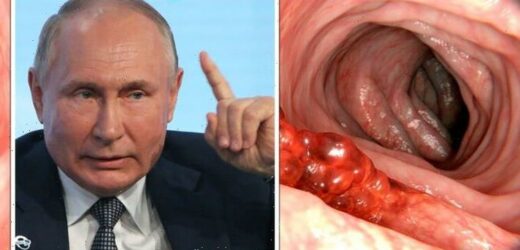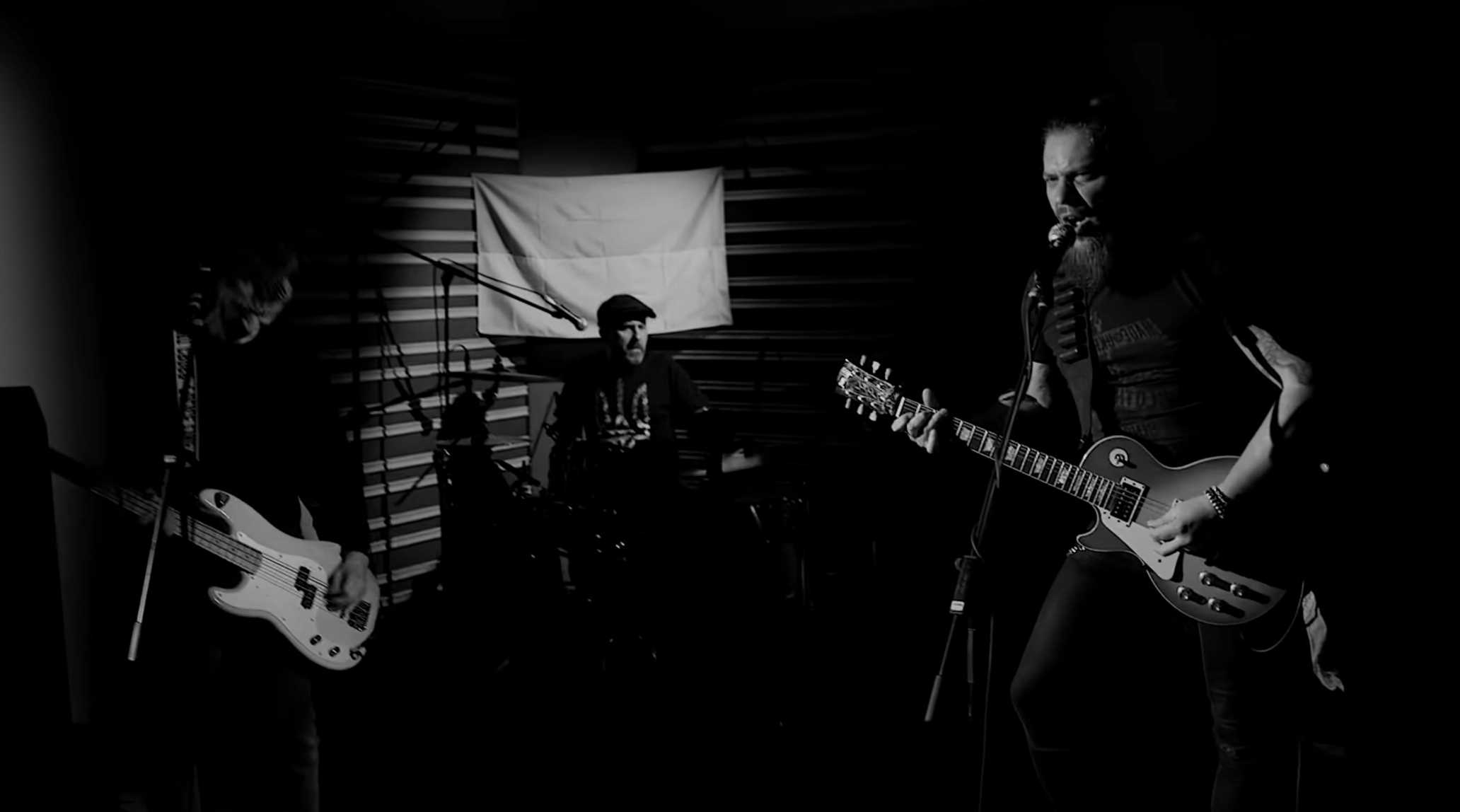Lorraine: Telling sign on Putin's face he's not well
We use your sign-up to provide content in ways you’ve consented to and to improve our understanding of you. This may include adverts from us and 3rd parties based on our understanding. You can unsubscribe at any time. More info
Bowel — or “colorectal” — cancer is the generic name given to any cancer that originates in the large intestine. Most cases are caused by a combination of increasing age, with diagnosis typically occurring after the age of 60 and lifestyle factors such as insufficient exercise, poor diet, obesity and smoking. It is estimated that some 1.93 million new cases of bowel cancer are diagnosed each year — around 42,900 of which are based in the UK.
The symptoms of colorectal cancer can vary depending on the location of the tumour along the gastrointestinal tract and whether or not such has metastasized, or spread, elsewhere.
Common signs, however, include persistent evidence of blood in one’s faeces, a change — usually in increase — in the frequency of bowel movements and ongoing pain or bloating in the lower abdomen that is set off by eating.
Bowel cancer patients may also end up being sick, experience unexpected weight loss, or find themselves tired and breathless as a result of anaemia, a deficit of red blood cells.
The primary treatments for colorectal cancer are the surgical removal of the affected section of the bowel, chemotherapy and radiotherapy.


In some cases, however, bowel cancer patients may also receive other courses of treatment.
Of relevance to the rumours circulating around Putin’s health is the administration of corticosteroids — artificial versions of the hormones our bodies use to regulate various functions including immune responses, inflammation and metabolism.
Cancer patients can receive various benefits from corticosteroids. For some cancers, they form part of the main treatment program itself, but they are also effective at reducing the nausea and vomiting caused by chemotherapy treatments and reducing cancer-related fatigue.
Studies have also shown that, for bowel cancer patients specifically, steroids can reduce inflammation and help relieve bowel obstructions.

Steroids, however, are capable of causing significant mood swings, colloquially known as “roid rage” and the buildup of fluid which leads to swelling of the extremities and face.
Analysts have suggested that the latter side-effect — sometimes referred to as Moon face” — may explain why Putin’s countenance has been decidedly puffier of late.
As physician and body language expert Dr Jack Brown wrote on Twitter: “Any other clinicians think Putin’s face looks a bit ‘Moon face’?
He added: “Differential diagnosis include – Cushing’s Syndrome, extended corticosteroids, primary vs. secondary causes of elevated ACTH, adrenal tumours, etc.)
“This could perhaps explain some of Putin’s mental-emotional change.”
It has also been observed that the Russian leader has been seen smiling far less in recent photos, a fact which could be the result of him suffering from the pain of a medical condition.

Alongside this, ever since the coronavirus pandemic began, Putin has adhered to a level of social distancing above and beyond that displayed by his fellow world leaders — reportedly requiring those he meets to isolate themselves for two weeks prior to contact and conducting joint press conferences with other leaders from unusually separated podiums.
A notable exception to the latter rule was Chinese President Xi Jinping, who was allowed to get within a few feet of Putin at the opening ceremony of the Winter Games, in Beijing, back at the start of February this year.
Other world leaders, meanwhile, have endured the ludicrous spectacle of sitting separated opposite Putin at an end of one of his many ludicrously long meeting tables.
The most iconic of these — a gleaming oval white-and-gold behemoth believed to have been made from beech by Italian craftsmen and used during meetings with French President Emmanuel Macron in early February — is believed to be as much as 20 feet in length.
While it could be simply that Putin is particularly concerned about contracting COVID-19 — although it is reported that he has had multiple vaccinations — these heightened measures have led many to suspect that the Russia leader may have an underlying health condition that might mandate such additional precautions.
DON’T MISS:
Putin blinks first: Bumper gas supplies sent to EU [INSIGHT]
India sabotages Russia sanctions with deal to import 3.5m oil barrels [REPORT]
Scientists declare if humanity would survive Russia nuclear war [ANALYSIS]

A serious — or perhaps terminal — illness might explain the acceleration in Putin’s previous long game towards capturing land the president believes should belong to Russia.
According to The News, during an online debate with pupils at his alma mater, Portsmouth Grammar School, risk expert and former Rear Admiral Chris Parry noted that Putin has been using these very long tables to interview people.
“I think his immune system might be suppressed at the moment. So, he is a man in a hurry.”
Meanwhile, an unidentified source at the Pentagon told the Daily Star that US analysts have reached a similar conclusion.
They said: “In the past we have seen him smile, but in 2022 there are few pictures of him looking happy.
“His look suggests he is in pain and our people suggest his angry look is most likely as a result of him being in agony.
“Our people are confident he is ill — he is concerned about Covid as he keeps his staff at a distance.”
The most recent comments from official sources came this weekend, when US senator and senior Senate Intelligence Committee member Marco Rubio dropped similar hints.
Mr Rubio told the Telegraph: “I wish I could share more, but for now, I can say it’s pretty obvious to many that something is off with Putin.
“He has always been a killer, but his problem now is different and significant.”
Putin, he went on to add, “appears to have some neuro/physiological health issues.”
To date, the Kremlin has not confirmed any of these rumours — although they have previously denied similar.
An early suggestion that the Russian President might be unwell came in late 2020, when historian Professor Valery Solovei, then, of the Moscow State Institute of International Relations, mooted the notion that Putin might have both cancer and Parkinson’s disease.
However, Kremlin spokesperson Dmitry Peskov told Reuters at the time that the suggestion was “absolute nonsense” and that “everything [was] fine with the president.”
Source: Read Full Article


